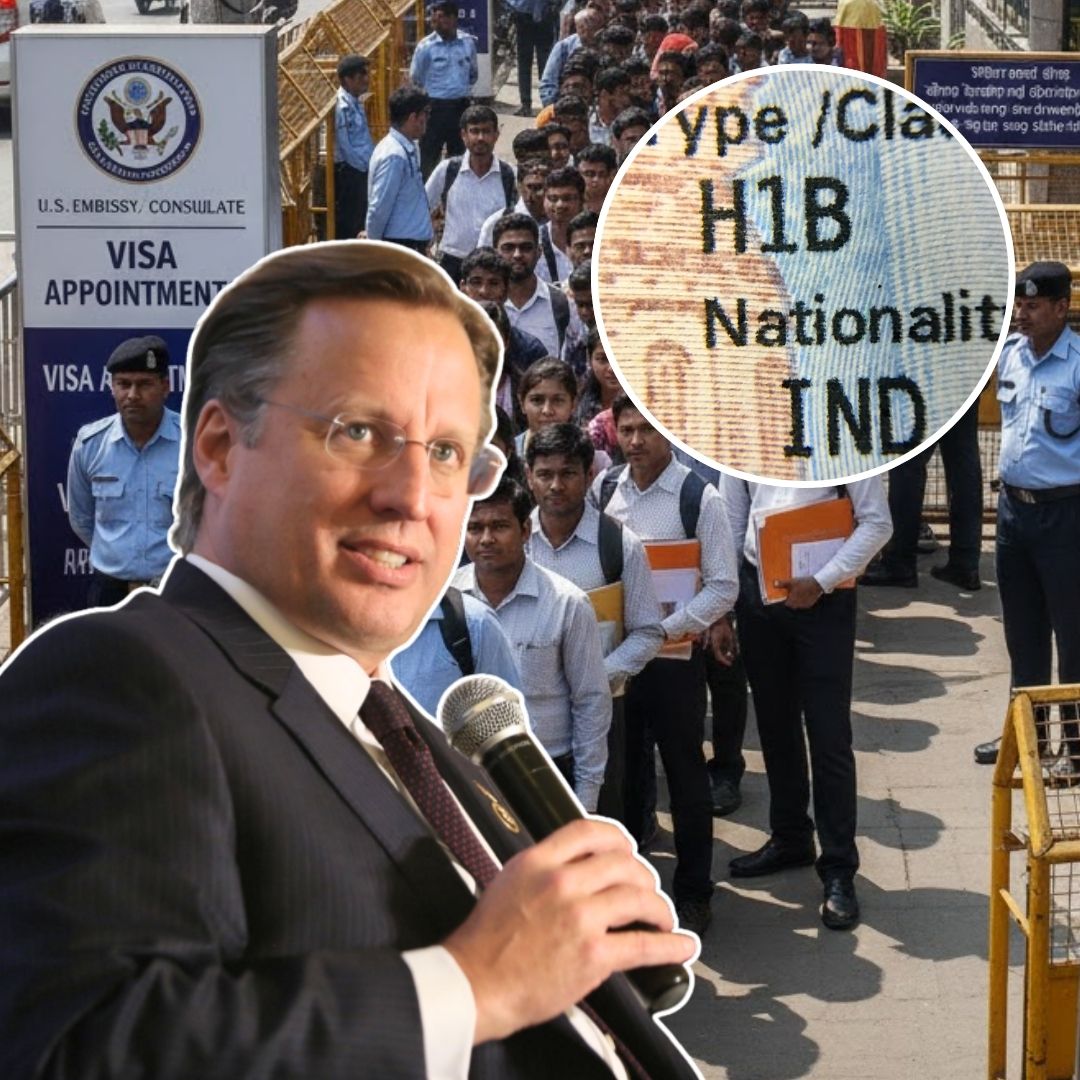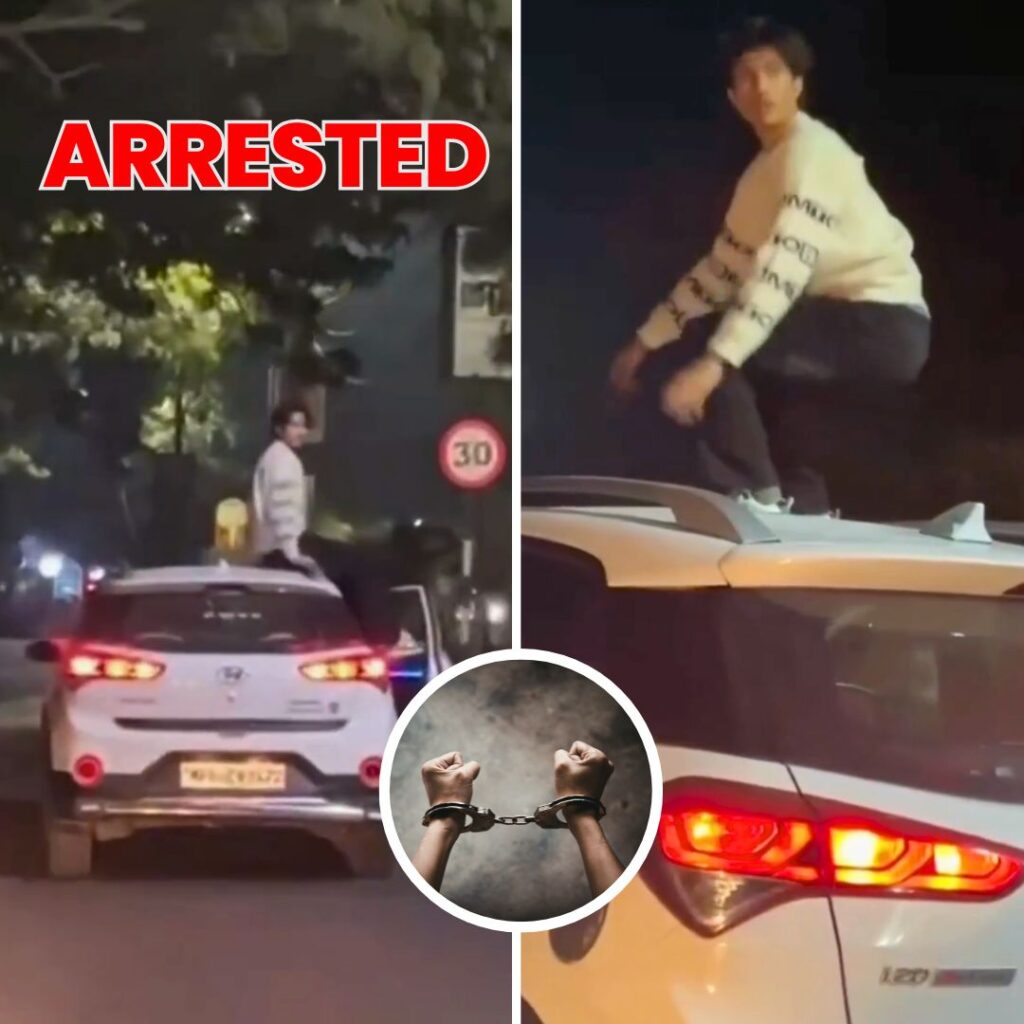Former US Representative and economist Dr Dave Brat has alleged massive, industrial-scale fraud in the US H-1B visa programme, claiming the Chennai consulate alone issued 220,000 H-1B visas in 2024, which is more than double the total US statutory cap of 85,000 visas nationwide.
This exposes serious discrepancies suggesting widespread forgery and unqualified applicants, mainly from India, posing as skilled workers.
Former US diplomat Mahvash Siddiqui supported these allegations, stating 80-90% of Indian H-1B applications were fraudulent, citing fake degrees, proxy interviews, and forged job offers. Despite their warnings, political pressures reportedly impeded anti-fraud efforts.
H-1B Visa Scam?
Dr Brat’s claims highlight a troubling breach of statutory visa limits, with 71% of H-1B visas going to India compared to 12% for China. The Chennai consulate processes applications from Tamil Nadu, Karnataka, Kerala, and Telangana, making it one of the busiest centres globally.
“71 per cent of H-1B visas come from India, and only 12 per cent from China. That tells you something’s going on right there,” Brat said on Steve Bannon’s War Room podcast. “There’s a cap of only 85,000 H-1B visas, yet somehow one district in India, the Madras (Chennai) district, got 220,000. That’s 2.5 times the cap Congress has set. So that’s the scam.”
Brat described the system as “captured by industrial-scale fraud,” warning that many visa holders are unskilled workers taking jobs from American families. Mahvash Siddiqui, a former US consular officer in Chennai, revealed longstanding patterns of document forgery, proxy candidates, and corrupt hiring practices, especially in Hyderabad’s training hubs.
Impact on Workers and Programme Integrity
The H-1B visa is critical for employing specialised foreign talent in the US technology sector. However, these fraud allegations raise questions about the programme’s integrity and its impact on American workers and economic security.
Though the US government, including recent Trump statements, recognises the need for global talent, ensuring that visas go to genuinely skilled workers is essential. The Chennai consulate handled roughly 220,000 H-1B visas and 140,000 dependent H-4 visas in 2024, intensifying scrutiny of the consulate’s vetting processes.
What is H-1B Visa
The H-1B visa is a non-immigrant visa in the United States that allows employers to temporarily hire foreign workers in specialty occupations. These jobs typically require specialised knowledge and a minimum of a bachelor’s degree or its equivalent in a related field.
To qualify, applicants must have relevant education, training, or experience linked to the job offered by a US employer who sponsors their visa petition. The visa is position-specific, meaning workers can only perform duties outlined in their approved application.
The H-1B programme has an annual cap, limiting new visas issued each year to 85,000, with priority given to highly skilled professionals in sectors like technology and engineering.
Trump’s Approach to H-1B Visas
Recent Trump policies on the H-1B visa programme present a nuanced stance. Although his administration imposed a hefty $100,000 fee on new H-1B visa petitions to curb abuses and protect American jobs, Trump publicly affirmed the necessity of the programme.
He emphasised the importance of global talent, especially Indian tech professionals, in filling critical workforce gaps in US industries such as manufacturing and technology.
The Logical Indian’s Perspective
This controversy underlines the need for transparency and rigorous oversight in immigration systems to protect both receiving and sending countries’ interests.
Immigration programmes like H-1B should promote fair opportunities for skilled individuals without enabling fraud, exploitation, or undermining native workers’ livelihoods. Constructive collaboration between India and the US can strengthen system integrity and bilateral trust.











